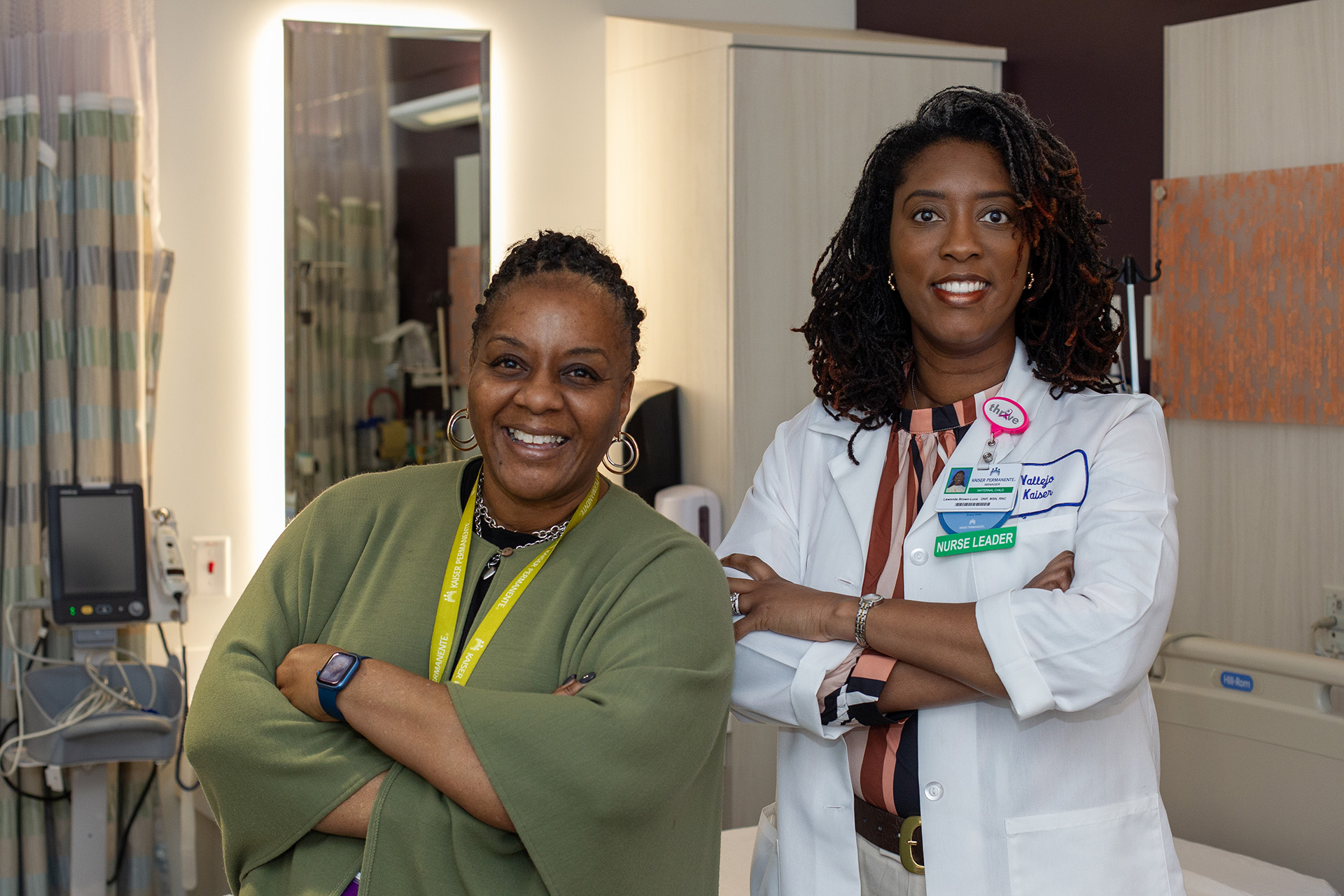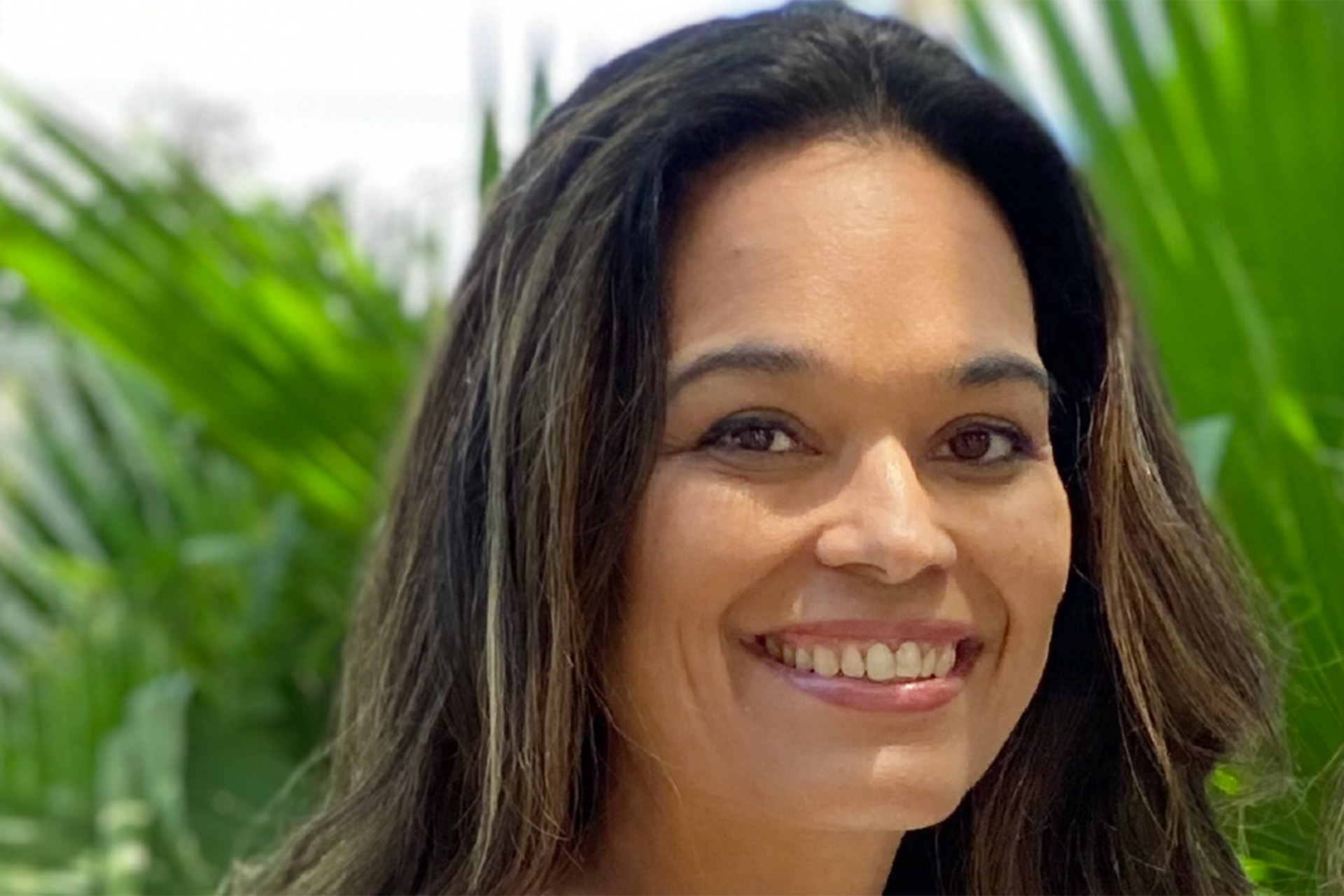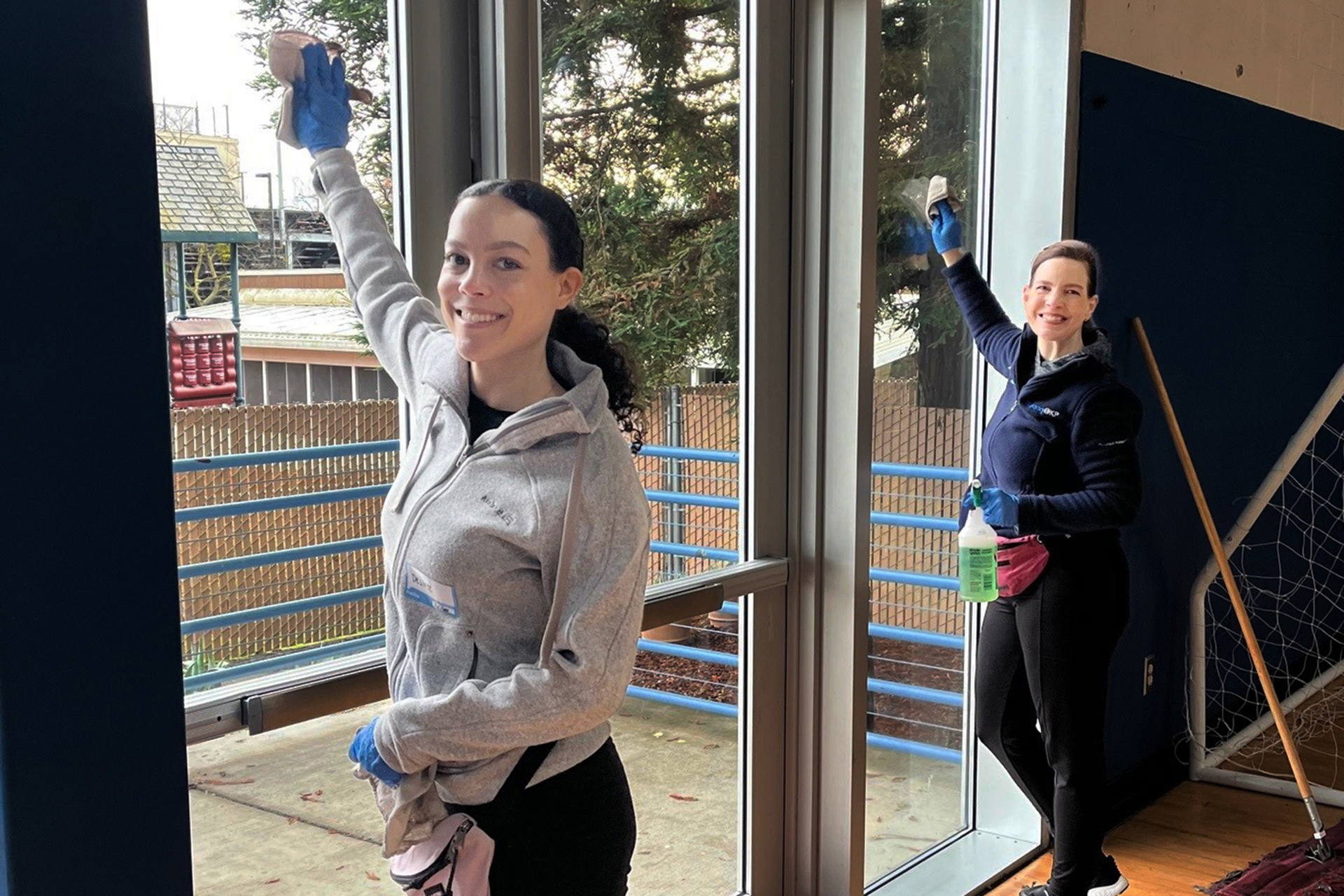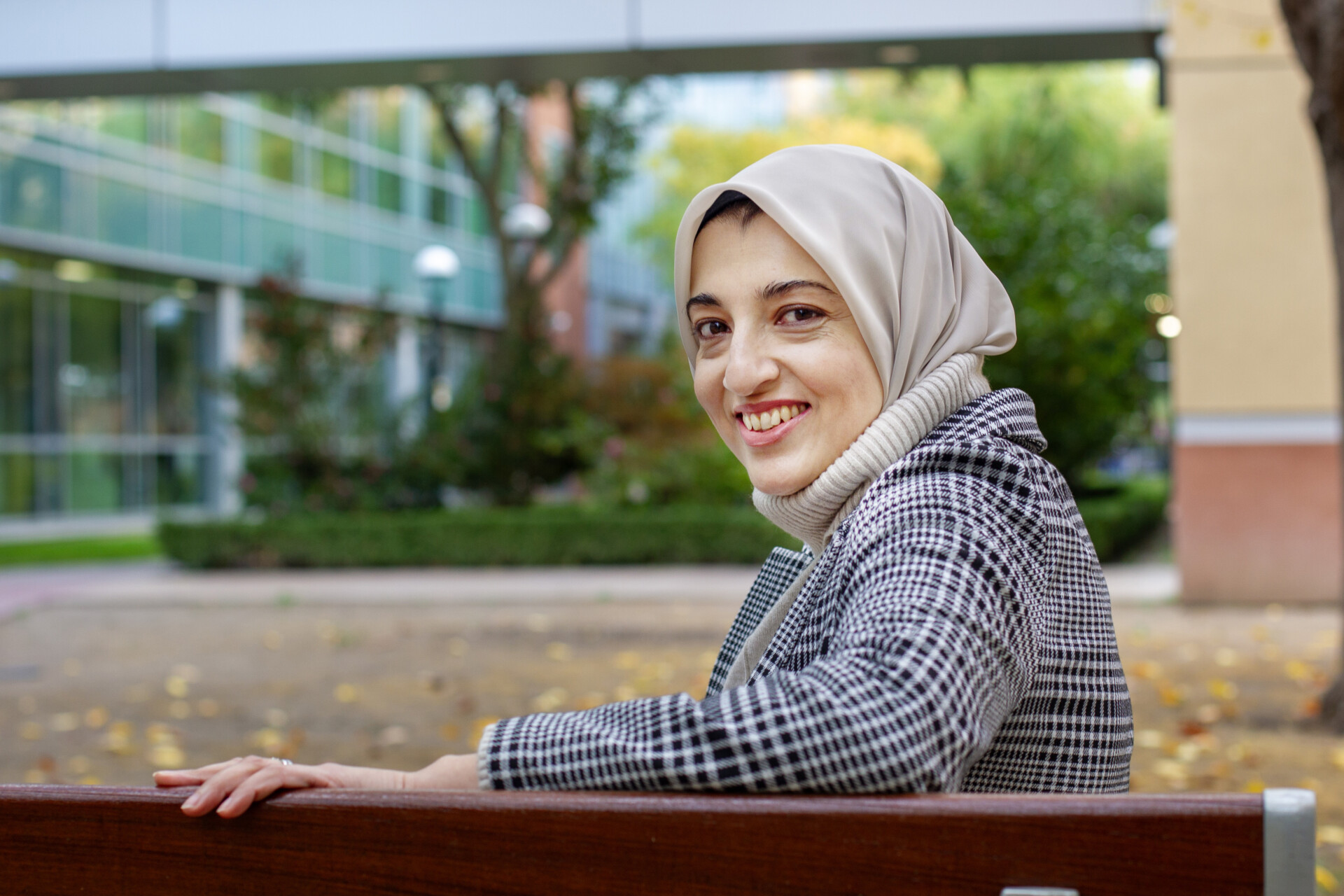Every month for a year and a half now, Kaiser Permanente Vallejo Medical Center Family Birthing Center clinicians have been talking about an uncomfortable topic: unconscious personal bias and how it can affect the care of their patients.
What began in September of 2022 as two nurses and a doctor talking about racial disparities in maternity care is now an official monthly discussion committee of 25-30 clinicians. Family Birthing Center Manager Lawonda Brown-Lucas, RN, DNP, leads the committee.
“The most impactful thing we have done is make a safe space for people to acknowledge their racial biases and ask questions,” said Brown-Lucas. “What we learned is that some people may not understand what an implicit or unconscious bias is, what a stereotype is, or understand different cultures.”
Committee discussions include teach-ins on terminology with examples and book readings. This year, Brown-Lucas plans topics around how mental health trauma informs pregnancy care.
Why bias matters
Members who engage with the committee have learned that bias has far-reaching health effects on the lives of mothers who give birth.
A nationwide survey of 2,400 mothers in 2023 by the Centers for Disease Control and Prevention found that approximately 40% of Black, Latino, and multiracial respondents reported discrimination during their pregnancy and when delivering. The report concludes that “improving respectful care is an important component of strategies to reduce pregnancy-related deaths.”
According to the California Department of Public Health, racial disparities in maternal care, a lack of neighborhood resources, and chronic health disparities contribute to a Black maternal death rate 4 times that of any other racial group in the state.
“This is something nurses everywhere need to embrace because there is a disproportionately high number of Black women dying across the country during childbirth,” said Brown-Lucas. “Our committee offers a safe space where people can learn but not get stressed out.”
Brown-Lucas said committee members open to learning about bias often reflect that they did not know certain behaviors or comments might offend others.
“For example, if you’ve only grown up in a white environment, you might not know that calling a Black woman ‘girl’ can be racially charged,” Brown-Lucas said. “Or you may not know that in Black culture, sometimes the partners are not there during childbirth. You can’t judge that as a caregiver because it has consequences.”
Spreading equity in Northern California
Educating clinicians around birth equity and pregnancy care is ongoing across Kaiser Permanente Northern California medical centers, said Carla Wicks, MD, Regional Medical Director of Equity, Inclusion and Diversity.
Brenda Jones, RN, DHSc, director of Women and Children Services at Kaiser Permanente San Francisco Medical Center, brought 30 years of equity work to the medical center when she joined the organization about a year ago.
After meeting with community leaders, one of her first tasks around equity was making it a priority to address community feedback that pregnant Black women were being treated differently at the hospital.
“I saw an opportunity to do better,” said Jones, who previously served as the first Black deputy director of Women’s Health at the Illinois Department of Public Health. She was also a perinatal consultant for the Joint Commission, which is a health quality and safety accreditation organization.
At the Kaiser Permanente San Francisco Medical Center, she helped start a Maternal and Child Equity task force with Laura Norrell, MD, with support from Mark Gaines, a program manager of inclusion and diversity.
Jones said bias in pregnancy care can be expressed in various microaggressions.
For example, the caregiver mood may shift when a birthing partner smells of marijuana or a patient wants to bring several family members to a doctor’s appointment or into the care space while giving birth.
“Our role is not to judge things like that,” said Jones. “Overall, we do amazing work here, but we have to change these little pieces of bias that crop up. It’s subtle things that can change a person’s experience and ultimately their health outcomes.”
Jones said 2023 was a whirlwind of activity around addressing pregnancy inequities.
She created an equity committee, held community meetings that included the San Francisco Department of Public Health, developed home care instructions in more languages, and built new data reports on maternal health outcomes by race. She also initiated bias and microaggression training.
This year will build on all of that work, she said.
“Is there opportunity? There certainly is,” said Jones. “We have to address our biases in how we treat these women so they can have the best care and outcomes possible. I’m very excited about it, and I couldn’t be happier, because I’ve dedicated my whole life to this work.”





This Post Has 0 Comments